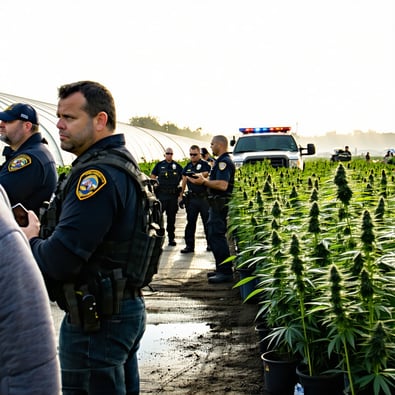A recently published study examined how the use of medical cannabis affected how often chronic pain patients use healthcare services (1). The study noted that chronic pain affects an estimated 20% of adults in the US, and patients are more likely to use emergency treatment services. It also states that cannabis has been suggested in previous studies to be an effective treatment option for chronic pain while conventional treatments tend to have short-lived improvements in pain. To find out how medical cannabis use impacted healthcare utilization in chronic pain patients, researchers examined data from the telehealth platform Leafwell, analyzing patient self-reported data on urgent care visits, emergency department visits, hospitalizations, and quality of life. The retrospective cohort study, “Medical Cannabis Use and Healthcare Utilization Among Patients with Chronic Pain: A Causal Inference Analysis Using TMLE,” was published in July 2025 in Pharmacy.
The researchers analyzed data across 36 states from 5242 patients, 3943 with cannabis exposure (prior cannabis use within the past year and renewing their medical cannabis card through Leafwell) and 1299 patients with no exposure (applying for a card for the first time). Patients were ages 18 and older with chronic noncancer pain. Individuals using cannabis recreationally were not included in the study. Patients were asked about their healthcare utilization within the past six months. The researchers used Targeted Maximum Likelihood Estimation (TMLE) within SuperLearner to estimate the effect of cannabis on healthcare utilization. Changes in quality of life were measured using the Healthy Days measure from the Centers for Disease Control.
Highlighted results included:
- Cannabis exposure was associated with a 2.0 percentage point reduction (27%) in urgent care visits
- It was also associated with 3.2 percentage point reduction (33%) in emergency department visits
- Cannabis exposure was associated with 3.5 fewer unhealthy days per month (an 18% decrease)
- Differences in hospital visits were not significant statistically
The lower rates of urgent care and emergency department visits in the cannabis exposed group were suggested to be caused by improved day-to-day functioning and wellbeing, resulting in less need for urgent symptom care.
The limitations of the study included reliance on self-reported data to categorize patient cannabis exposure and healthcare utilization. Differences in cannabis dosage, consumption method, or frequency were also not accounted for.
Based on the results, additional longitudinal studies were called for in order to further examine the long-term cost efficiency of cannabis. “These real-world gains build on prior work which finds small health improvements associated with medical cannabis use and noncancer chronic pain,” the researchers stated. “Taken together, these findings suggest that medical cannabis may offer a meaningful complement to existing pain management strategies by not only alleviating symptoms but also reducing the burden on acute-care systems.”
“These findings demonstrate the tangible benefits that medical cannabis offers people with chronic pain, who are often overburdened by excessive healthcare costs,” stated study author Mitchell Doucette, Senior Director of Research at Leafwell, in a news release (2). “While more clinical trials are needed to establish the ideal dosing strategies and potential risks, this study is a step in the right direction toward recognizing the meaningful impact of cannabis in healthcare.”
by Cannabis Science and Technology





